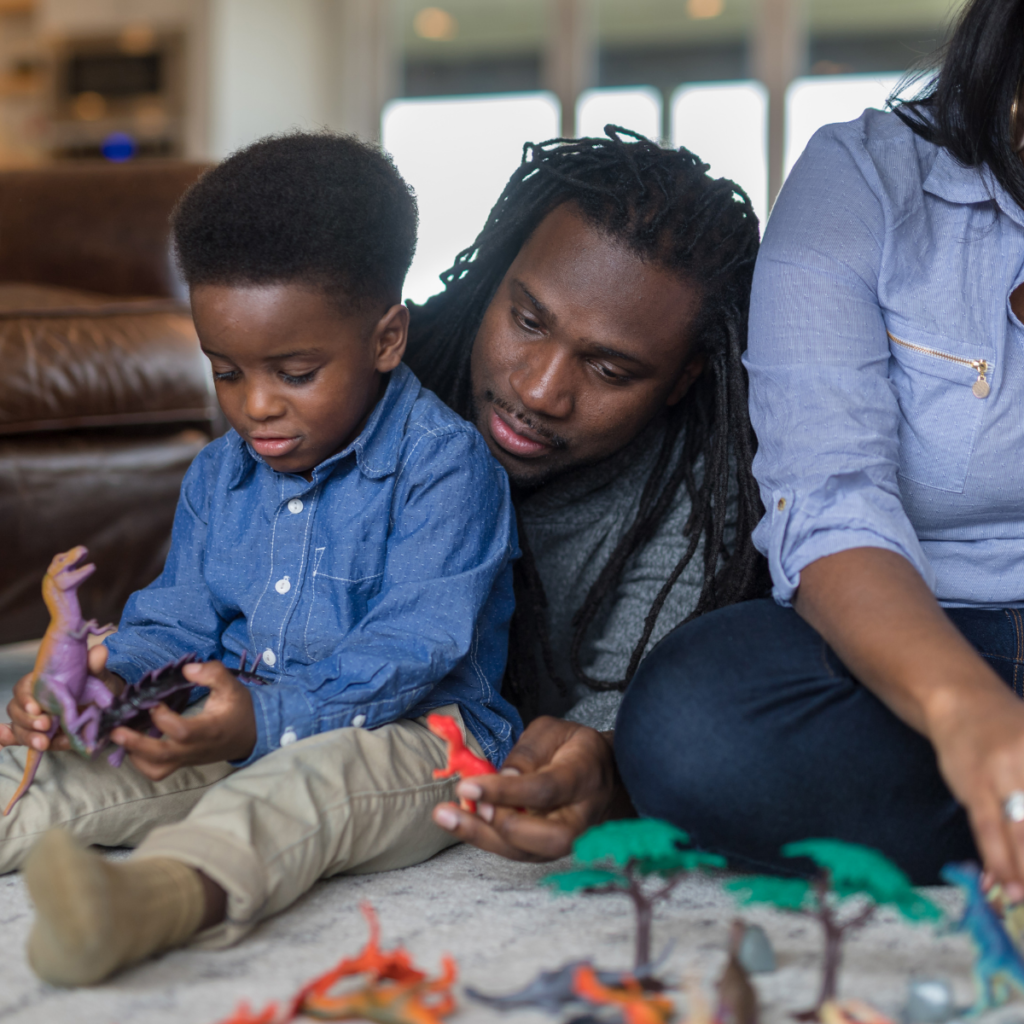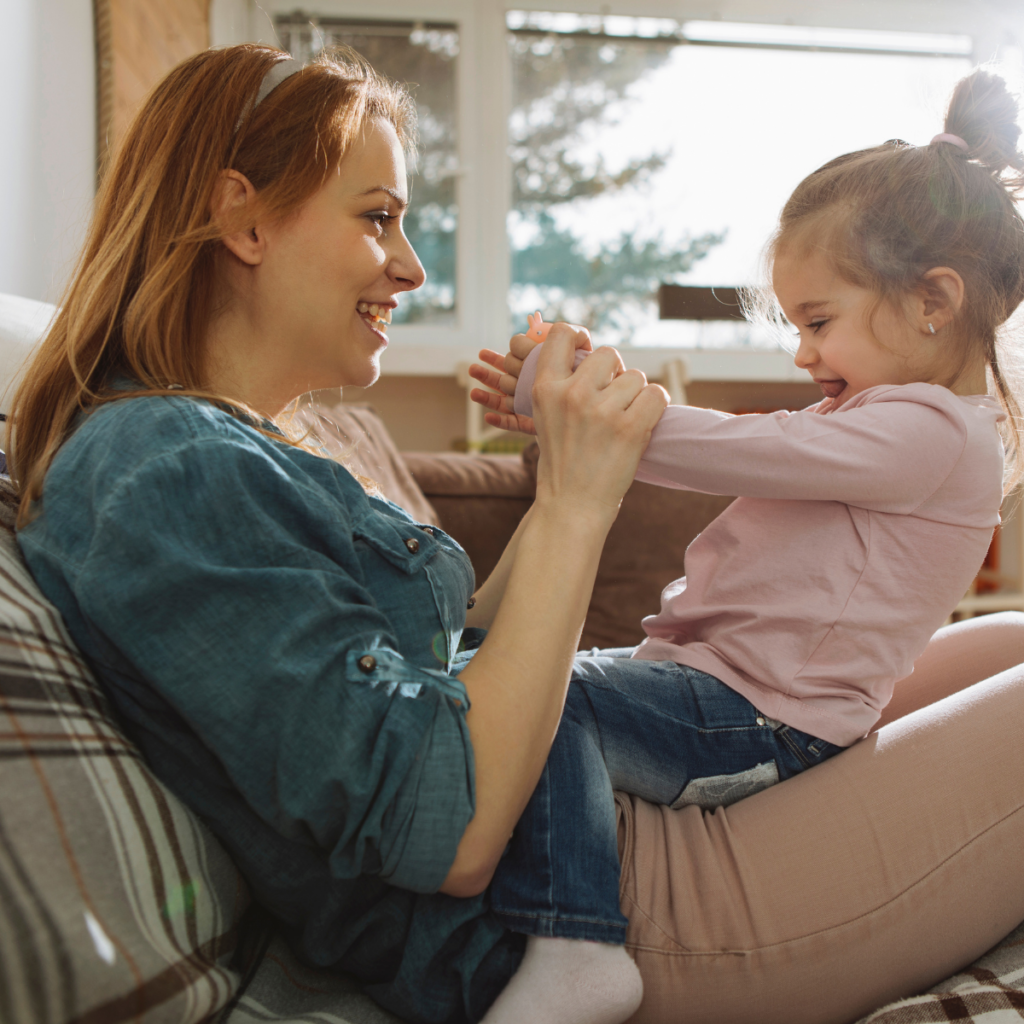What is toddler led play?

Toddler led play is time when you play with your child and let them be in charge. Parents expect toddlers to respond when we ask them to get dressed, or tell them we are going out. Having other people be in control of their life is difficult for toddlers. Toddler led play offers a chance to equalise the relationship. Setting time aside for this play is important. Parents often lead lives in which play can seem like an interruption from more important tasks. However, to a toddler few things are more important than play.
Why does toddler led play matter?
Modelling: leading and being led
Toddlers learn a huge amount about how to behave from watching you, their parents. This is known as modelling. Parents model being in charge and leading activities a lot. We give instructions and things of children all the time. What’s more, we usually expect toddlers to respond and comply. However, how often do we model this responsive, compliant behaviour?
It is important that we give toddlers a chance to explore that directive behaviour that we demonstrate all the time. Whilst they are doing that, we are, in turn, modelling compliance. We are also showing our children that we are not ‘above’ taking instruction.
Relationship goals

“Showing that we are not above taking instruction.” At CalmFamily one of our key values is that of equality. That means giving the needs of all parties equal importance. It also means that we strive for equality in relationships. We do not believe that our children are lesser partners in our relationships. Long-term we establish stronger relationships when we treat our children as equals. So, letting our child be in charge helps to turn the tables on the power dynamic that busy lives and schedules can create. We are acknowledging that we ask a lot of our children and we offer this time for them to ask things of us. It is important that we offer this time regularly too, not as a one off.
However, equality is not the only relationship goal that this undistracted and uninterrupted playtime can support. When we play with our child with our full attention we connect with them. We respond to them through our actions, but also our body language, our facial expressions, our tone of voice. These small bursts of play are fantastic opportunities for connection. Connection is a fundamental human need. It can help strengthen relationships, rebuild them after a rift or falling out, and builds the joy we find in each other’s presence.
Toddler led play for calmer toddlers
Toddlers often exhibit a lot of ‘behaviour’ when they are disregulated and their needs are not well met. Autonomy is another fundamental human need. They need time when they are in control. Offer them little amounts of control where possible can hugely reduce conflict and issues in other areas of life. Toddler led play can form a key part of meeting their need for autonomy and connection, and creating calmer relationships and calmer toddlers.
Why parents often struggle with play
Toddlers love it when their parent plays with them, and research shows it is important for their development that we do. Their lives are built around play and so sharing this with us (the people they are most connected to) is something they are desperate for. This is a massive privilege but many parents struggle with it. They often find play at toddler level quite boring. There is often repetition, and what is new and exploratory to a toddler is not so new to you. We understand, and it is normal to think playing with your child is boring sometimes, and normal to enjoy it at others.
Parents are usually surprised at how difficult toddler led play is at first. It is very common for adults to feel uncomfortable about engaging in child-led play. They may feel silly. They may have no experience of adults playing with them as a child. Parents may get frustrated, particularly with a child’s enjoyment of repetition, or may worry that a child’s play is silly or unhealthy.
It is essential that we be honest and acknowledge that this can be difficult, whilst we accept that it is important that we do it anyway.
It not only aids development but also models those important characteristics that we expect to see in our toddlers often: compliance, listening, and cooperation. Remember that our children will model the ways we behave more than the things we say, so if we want our children to develop the above skills, modelling them is key.

Human needs: a blog by Tomlin Fackrell
Find out more about human needs, what they are and how to meet them
CalmFamily’s top tips for toddler led play
Some suggestion on getting the most from short sessions of toddler directed play:
- Set aside 10 minutes protected time for each session. Ten minutes may not sound like very long, but it can feel like a long time. Ten minutes is enough. If you enjoy it and have more time do it more often, or increase the duration, but make sure you can sustain it long-term.
- If you have more than one child aim to ensure that they each get one to one sessions with you where they can lead play. Playing with siblings is great, but for this to meet their need for autonomy you need to remove the requirement to negotiate.
- Toddlers’ development and behaviour responds best when this happens everyday, but that’s not always possible. Try to do it as often as possible.
- Do it at a similar time; e.g., after breakfast on Monday, Wednesday and Friday. This makes it predictable for your toddler.
- Stay focused on your toddler — no distractions! (Phones are a common distraction.)
- Always let your toddler direct the play and let them know they are in charge.
- Let your toddler know that this is their time. They may develop their own name for it.
- No instructions, questions or judgements. These interrupt the flow of the play. Instead comment on what you see if you want to say something “I can see we are building a tower. You put the orange block on the green one.”
- Have a pre-agreed ending to the play. Set a timer. Explain “When the timer goes off it will mean it is time for us to stop playing”. If it’s possible give your toddler some control over setting the timer. They could press ‘start’ themself, or choose a number of minutes for play up to ten.
- To make the end of the session predictable, remind your toddler before the end of the session if you can: “our play will be finishing in 1 minute”.
- Your child may be upset when the play session finishes. This is normal. Be compassionate but keep your limit in place.
- When the timer goes off thank your child, tell them what you have enjoyed about playing together, and that you’re looking forward to next time.



Responses